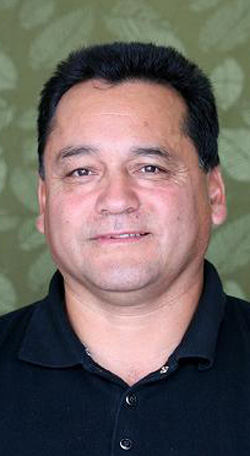
A First Nations lawsuit to recover nearly a century-and-a-half's worth of treaty annuities payments is expected to be launched today.
Two years ago, 21 First Nations - including Batchewana and Garden River - threatened to sue if the province didn’t begin negotiations toward increasing a “grossly unfair” $4 per-member annuity that hasn’t budged since 1874.
The payment hasn't increased, the chiefs of those First Nations pointed out, despite the Robinson-Huron Treaty being explicit in allowing for increases to annuities if rescource revenue from the territory was such that an increase could be made without the Crown incurring a loss.
A press conference is scheduled for this afternoon as part of a treaty education event hosted by Shingwauk Kinoomaage Gamig at Algoma University.
Chiefs of the Robinson-Huron territory are scheduled to speak at the seminar, which commemorates the 250th anniversary of the Treaty of Niagara.
Speakers are to include Shingauk U. President Darrell Boissoneau, Anishinaabe scholars Rainey Gaywish and Alan Corbiere, and Anishinaabe legal counsel David Nahwegahbow.
The date of the seminar is also the 164th anniversary of the signing of the Robinson Huron Treaty on Sept. 9, 1850.
UOI OFFICES – First Nations parties to the Robinson-Huron Treaty haven’t seen their benefits increased in 140 years.
Chiefs from the Robinson-Huron Treaty territory are filing their Statement of Claim today in right of Canada and Ontario regarding the longstanding failure of the Crown to raise annuities under the Treaty signed in 1850.
“There are 21 First Nation communities – 30,000 beneficiaries to the Robinson-Huron Treaty,” says Anishinabek Nation Grand Council Chief Patrick Madahbee. “Each person receives $4 per year. The annuity has not increased since 1874. This is a long time coming and a giant step forward.”
“The Treaty is pretty clear that the annuities would increase when the resource revenue generated from the territory increased,” said Madahbee, who helped initiate this process over 30 years ago. “It couldn’t be plainer that the territory has generated vast amounts of revenues from forestry, mining and other resource development. Still we receive four dollars per year. That is unfair and not what we bargained for.”
Under the Robinson Huron Treaty, signed on September 9, 1850, the Anishinabek (“Ojibewa Indians”) agreed to share their lands and resources with the newcomers – approximately 35,700 square miles of territory.
In return, the Crown, among other things, was supposed to pay annuities that were to be augmented from time to time.
“This is the 164th anniversary of the signing of the Robinson-Huron Treaty,” says Madahbee. “It was meant to provide economic benefits for our people. This is not what our ancestors signed on for.”
Of the 21 signatory communities, 19 are Anishinabek Nation communities and the other two are Batchewana and Shawanaga.
The Anishinabek Nation established the Union of Ontario Indians as its secretariat in 1949.
The UOI is a political advocate for 39 member communities across Ontario, representing approximately 55,000 people.
The Union of Ontario Indians is the oldest political organization in Ontario and can trace its roots back to the Confederacy of Three Fires, which existed long before European contact.
***************************